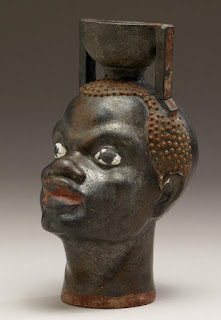The Greeks are not really Greeks at all!
The Greeks are not really Greeks at all! Instead, they are a "Turkish-molded mixture of Slavs, Byzantines and Albanians" - and therefore would never have been allowed to enter the EU.
Rummaging through history to explain the present is always a bit risky. Because the temptation is great to come up with an explanation from the past when the present is not working as it should - as, for example, in the current crisis in Greece.
Since the beginning of the crisis there have been repeated voices that have considered Greece's entry into the EU as early as 1981 to be premature - mainly for economic reasons. On Thursday, however, the editor Berthold Seewald presented a completely new interpretation to Die Welt: The Greeks not only kidnapped us about their financial solvency - they are also genetically no longer real Greeks!
But let's start from the beginning: In the text, which militantly says "Greece has already destroyed European order", the author explains the story of the naval battle of Navarino. On October 20, 1827, English, French and Russian battleships destroyed the Ottoman fleet and thus helped Greek struggle for freedom against the rule of the sultan to a breakthrough.
The three powers actually did this against their convictions (peoples should not rise up against their monarchs), out of pure romanticism - because the classically educated Western Europeans did not want the descendants of Homer, Socrates and Pericles to be further suppressed by Turks. So far, so informative. At the very end of the text, however, the author explains that the whole action always happened for the wrong reasons, because:
“The idea that the Greeks of modern times were descendants of Pericles or Socrates and not a mixture of Slavs, Byzantines and Albanians transformed into Turkish, became a doctrine for educated Europe. The architects of the EU could not avoid this either. In his spirit, they brought Greece, which was already clammy in 1980, onto the European boat. The consequences can be admired every day. "
Berthold! What's going on there? The interesting thing about the whole statement is that there is actually nothing wrong with it until the very end. The author basically only describes the romantic notions of the Western Europeans of "the Greeks" and contrasts them with reality.
In fact, many Western Europeans returned bitterly disappointed from their first trip to Greece, especially in the 19th century. The Greeks, who, thanks to their classical education, had imagined them to be proud and strong heroes (much like Brad Bitt in Troy), looked in reality significantly more black-haired, darker-skinned and crooked-nosed. As recently as 1906, Virginia Woolf complained bitterly that none of the Greeks understood their real Greek anymore - the two thousand year old language she had learned from an ancient book.
On the other hand, two defense mechanisms were quickly developed: One group simply completely ignored the situation. A few people, on the other hand, quickly developed the theory that the "real" Greeks were "infiltrated" throughout the Middle Ages by successive immigration, mainly Slavs and Turks, and thus finally disappeared completely.
However, both groups agreed that only the Greeks from Pericles' time were really good Greeks. Everything that came after that was crap — especially the Byzantine Empire. The fact that the Byzantine Empire (which referred to itself as the Eastern Roman Empire) had survived for over a thousand years from its foundation to the conquest of Constantinople by the Turks in 1453 was ignored. For hundreds of years, Byzantine culture was superior to all others — and especially to everything that was going on in Western Europe. In the sixth century palaces were built in Constantinople, and there is hardly a single house with a solid floor in Western Europe from the same period. In England, after the Romans left, people forgot how to use pottery wheels while the Byzantines made silk for over three hundred years.
translated from vice.com/2015




